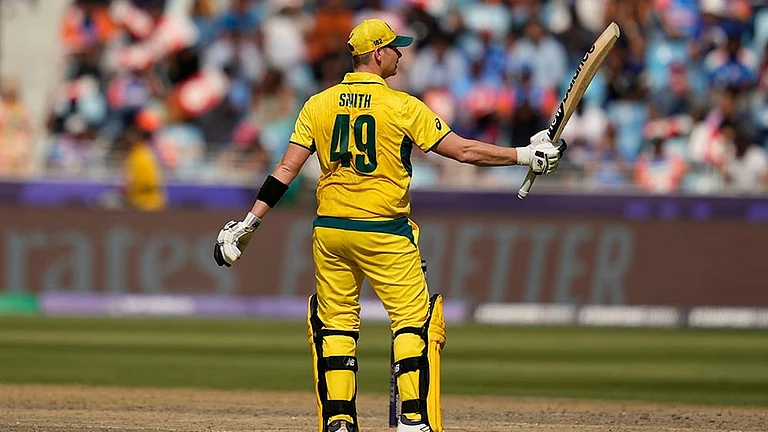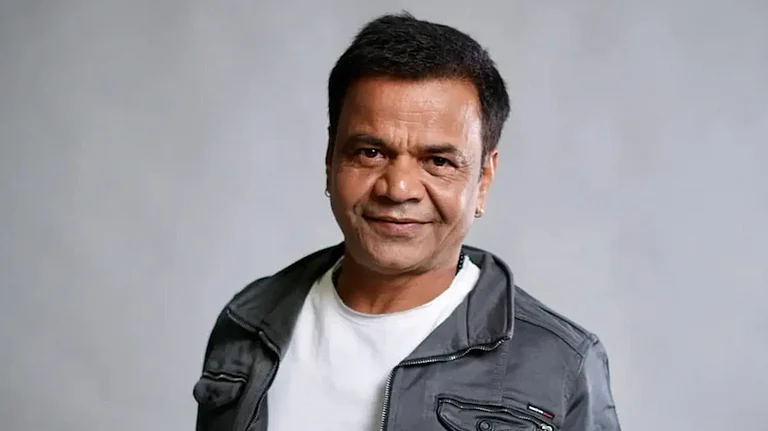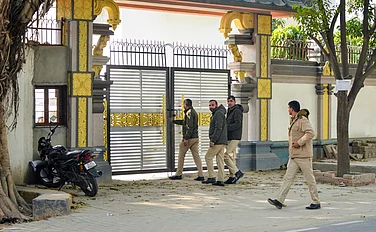Since the time of the Partition, Indian Muslims have inadvertently faced the burden of discrimination and reparations every time issues pertaining to domicile, belonging and aboriginality are evoked in part of the country. The latest example is the preparation of the National Register of Citizens (NRC) in Assam which was perceived by many as a communally charged and antagonistic step toward the Muslims and even led to nation-wide protests.
So, when the Jharkhand Government gave its nod to the domicile policy on the basis of 1932 land survey, a few questions naturally cropped up - what would happen to the Muslims of the state? Do they have land records here or are they infiltrators? These presumptive discussions nevertheless gained strength in the backdrop of communal turmoil that the state has been bearing for the last few months.
The violent protests of Muslims in Ranchi on June 10 against the former BJP spokesperson Nupur Sharma’s comment on Prophet Muhammad strengthened certain communal elements in the state. The rumors about Bangladeshi ‘ghuspetthiyas’ (infiltrators) soon started floating in the regional media. BJP MP Nishikant Dubey’s proclaiming in Parliament that Jharkhand had become an abode for millions of Bangladeshi infiltrators and that the Soren government was promoting ‘Islamization’ on August 9 made matters worse.
However, in contrast to all the presumptions and allegations, the Muslims in the state are in forefront of all the pro-domicile processions. Not only that, while speaking to the Outlook, one of them said, “We have been staying here for centuries. After so long, we will get the recognition of being Jharkhandi. It is, for us, much more than getting jobs in government sectors”.
These celebrations and attributions to centuries of belongingness made us look into the archives. How far can we trace the Muslims back? Are there references in British accounts regarding the presence of Muslims in this region? Did they participate in the independence movement? The following is a journey through the body of archives to trace the Muslims of Jharkhand to its early days.
Muslim Traces in Gazetteers and Archives:
Bihar Governor R R Diwakar in his 1952 book ‘Bihar Through Ages’, point out that Muslims have been staying in this region for at least 800 years. They gradually got mixed with the Adivasis and the exchange of lifestyle and culture continued. While working on Munda languages German Jesuit Linguist Father Hoffman even found the presence of Arabian and Persian words. Though such early presence of Muslims could not find further mention, Ranchi District Gazetteer written by Macpherson and Hallet in 1917 noted their presence during Sher Shah’s period. “During this period there must have been a considerable immigration of Muhammadans into the country, as villages composed entirely of Muhammadans are found scattered over the district”, he noted.
In another district Gazetteer compiled by N Kumar, we found that Muslims mostly of weaver caste started coming to this locality from Biharsharif and Gaya during the early nineteenth century. Their migration was a result of the promotion of British cotton goods and the decline of indigenous weaving tools in the region.
Another reason for Muslim settlement was an invitation from local feudal lords. The continuous Adivasi uprisings made the landlords insecure and they wanted military support from the Muslims of Bihar and up the country to tame the insurgents. However, the military adventurers were very few in numbers and couldn’t contribute much to the development of Muslim population.
The first mosque in Ranchi known as Handewala Mosque was however founded by a practitioner of law Nadir Mian in Upper Bazar. Bari Masjid also called the Jumma Masjid was founded in 1867. The traces of Muslims in Upper Bazar locality of Ranchi could be attributed to this period of time.
Another significant account of early presence of Muslims could be found in a survey of Ranchi city conducted during 1960-1962 by L P Vidyarthi and historian J N Basu. They found that Muslim ‘Gowala’ (Gaddis) castes have been staying in Doranda, Ranchi for more than two hundred years. In reference to the early traces of Muslims they note, “tribals were the original inhabitants and among the non-tribals, the Muslims were the first early settlers in the Ranchi area”.
Muslims of Ranchi during the Independence Movement
While the question of belonging is more about emotion than the papers, to miss out one’s presence in the struggle for independence amounts to negating her the rights to history/ histories. The presence of Maulana Abul kalam Azad in Ranchi though definitely played a big role in the consolidation of Muslims, there are other instances as well where Muslims took the leadership of the movement in the state.
When the Britishers celebrated the fall of Ottoman Empire, there were Muslims in Ranchi who denied celebrating victory of the colonizers. Kamta Chaube in her book Muslims and freedom Movements in India notes, “On December 14, 1919, a band of Muslims paraded through Baazar and explained the grievances the Muslims had against the Government and requested all people to boycott the peace celebrations. The Madrasa at Ranchi didn’t observe 13th December as a holiday. Practically all students attended their classes wearing black badges on their arms”.
The presence of the local Muslims in the non-cooperation movement could also be found in Letters from Mr. Whitty, Deputy Commissioner of Ranchi to I.F. Lyall, Commissioner of Chotonagpur, dated February 24, 1921. Noting the overwhelming impact of Muslim leadership, they pointed out Md. Yusuf, Md. Ishak, Md. Alim and Ali Jan Suudagar were the major leaders of the non-cooperation movement between November 1920- February 1921.
The address of Usman, then the head Maulavi of Anjuam Islamia Madrassa (founded by Maulana Abul Kalam Azad) on February 1, 1921, in a general meeting was noted especially in Police reports for his influence not only on Muslims, but rather on different Adivasi communities. The role of the Momin conference of Jharkhand region is also well noted. They were the first Muslim organization to oppose the Muslim league’s claims of partition.
These scattered references throughout the archives and literature may help us to understand why the Muslims are celebrating the domicile policy. At a time when the very existence of Muslims is confined to a few pieces of paper, documents, and identity cards, tracing them back in a state known for its Adivasi identity is an effort to look back at our histories in a different way.
At this juncture the words of Mohd. Imran, a fierce Jharkhand Andolankari find its relevance. Amidst the celebrations of the domicile policy when I asked about his opinion on it, I was told- “Hum kagaz zaroor dikhayenge”. (We will definitely show our papers)



























